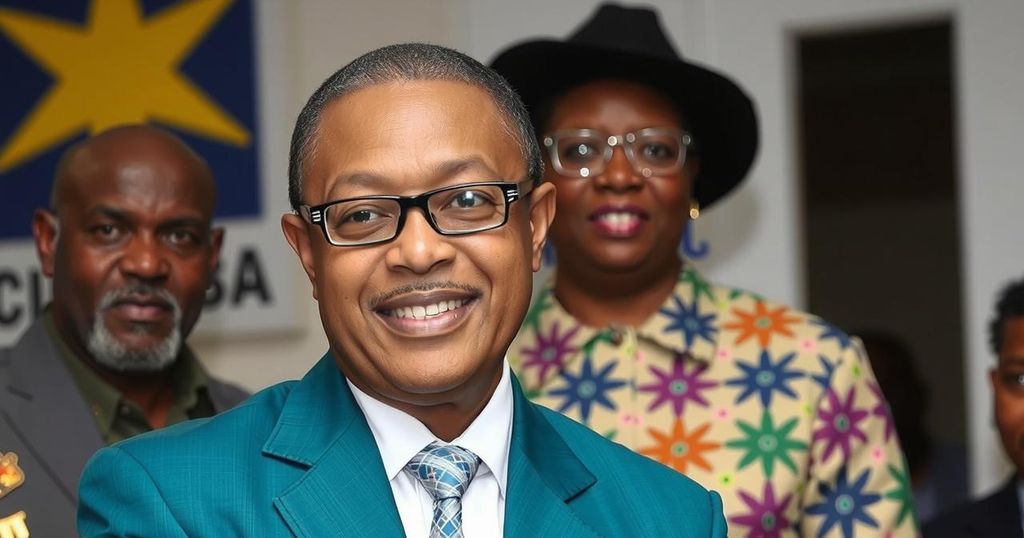Namibia Opposition IPC Rejects Election Results Amid Allegations of Misconduct

Namibia’s IPC refuses to acknowledge the election results due to logistical issues and allegations of misconduct. Presidential candidate Panduleni Itula cites electoral irregularities, while Swapo’s Netumbo Nandi-Ndaitwah aims for the presidency. Preliminary results show Nandi-Ndaitwah leading; the IPC plans to pursue legal action as it questions the election’s legitimacy.
Namibia’s principal opposition party, the Independent Patriots for Change (IPC), has declared its refusal to acknowledge the results of the recent general election due to significant logistical issues and allegations of electoral misconduct. Presidential candidate Panduleni Itula asserted that there were glaring irregularities during the voting process, which extended into Saturday due to both a shortage of ballot papers and failures of technical equipment.
With the ruling South West Africa People’s Organisation (Swapo) aiming to secure the presidency through its candidate Netumbo Nandi-Ndaitwah, who seeks to become the nation’s first female president, Itula contends that the election’s integrity has been compromised. As voting commenced on Wednesday and continued until Saturday in some regions, Itula emphasized that the IPC would firmly contest what they deem an illegitimate electoral outcome. He urged voters affected by mismanagement to reach out to law enforcement to report their grievances and announced plans to seek justice through the judiciary.
As the counting of votes progresses, preliminary results from 10 out of 121 constituencies indicate that Nandi-Ndaitwah has garnered 48% of the vote, while Itula trails with 30%. A candidate must secure more than 50% to achieve victory in the first round, leading to the possibility of a run-off if such a majority is not attained. Notably, Swapo, which has maintained power since Namibia’s independence in 1990, has experienced declining popularity, as evidenced by its vote share shrinking below 60% in the 2019 presidential election. These challenges reflect a broader trend among liberation movements in the region, characterized by recent electoral setbacks in other countries, including South Africa and Botswana.
The tension surrounding Namibia’s elections highlights the complex political dynamics within the country. Swapo, the ruling party, has a longstanding history since Namibia’s independence and led the liberation struggle against apartheid. However, growing discontent and electoral challenges have begun to threaten its dominance. The IPC’s contestation of the election results reflects a significant frustration with electoral processes, indicating a potential shift in Namibia’s political landscape.
In summary, the IPC’s refusal to accept Namibia’s election results underscores serious concerns about electoral integrity and mismanagement. As the nation awaits complete election results, the ongoing struggle for political legitimacy resonates within the broader context of changing political dynamics across southern Africa. The future of Swapo’s governance faces increasing scrutiny and potential challenges as opposition voices gain traction.
Original Source: www.bbc.co.uk






